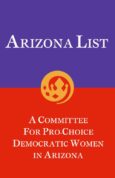This article was originally published by The Tucson Agenda.
Fundraising event draws dozens of women leaders … Elections are on everyone’s minds … UA Global campus controversy continues.
CAITLIN SCHMIDT AND CURT PRENDERGAST
SEP 1, 2023
Dozens of Arizona lawmakers, mayors and other elected officials gathered at an historic home in downtown Tucson Wednesday night.
What’s so newsworthy about that, you might wonder? They were all women.
The League of Arizona Cities and Towns conference is happening in Tucson this week, with nearly 1,200 elected officials and government employees in town for the annual event.
The conference location was Super PAC Arizona List’s good fortune, providing the group the opportunity to assemble a formidable group of more than 30 elected women leaders, representing Flagstaff, Sedona, Tempe, Phoenix, Fountain Hills, Mesa, El Mirage, Scottsdale and more.
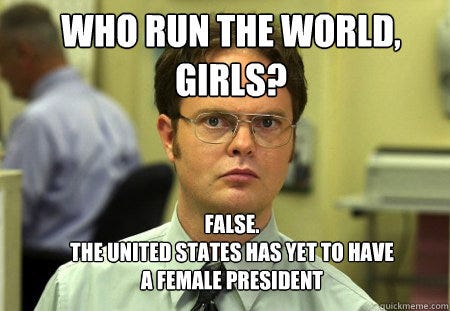
Caitlin had never been in a room with so many women in elected office, and the event made us think about what the world — or at least the state — could look like if women ran the show.
Attendees mingled with potential donors and talked about the importance of bringing new and diverse voices into local politics until one-by-one, several of Arizona’s current and former mayors stepped up to the microphone to address the crowd.
Much of the focus was on the 2024 elections, with former Maricopa County Sheriff Joe Arpaio announcing his 2024 run for Fountain Hills mayor earlier in the day. Arpaio lost the 2022 mayoral election to incumbent Ginny Dickey by 213 votes and has still not conceded.
Dickey was on hand, along with several other current and former women mayors, including three who made headlines during the pandemic when they banded together to push for more aggressive public health measures by the state.
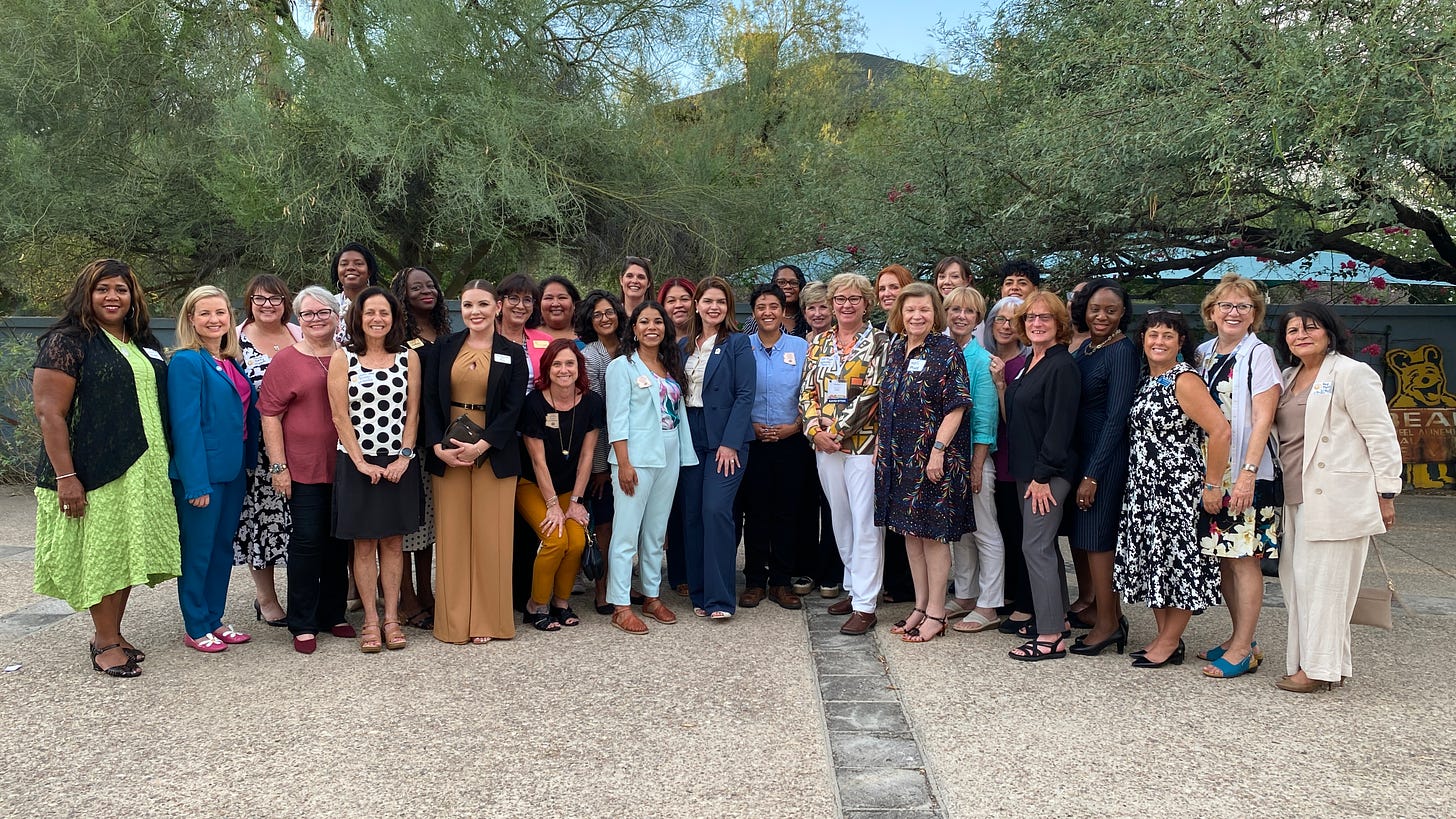
The gathering served as an impromptu family reunion for Arizona’s “sister mayors,” Tucson’s Regina Romero, Phoenix’s Kate Gallego and former Flagstaff Mayor Coral Evans, who spoke to the crowd about their efforts during the pandemic, their time in office, and how much has changed over the past several years when it comes to women in office.
When Gallego was elected in 2019, she became the only woman mayor in the 15 largest cities in the U.S. There’s been some progress in the years since, she said, with three of those 15 cities now having women leaders.
But Gallego said that Arizona is different when it comes to women in leadership roles.
“Arizona is a bright spot for women mayors,” Gallego said, pointing out that the largest cities in both the northern and southern parts of the state have women mayors. We checked, and it looks like 16 other municipalities in the state also have women mayors.
And while no one in attendance disputed the importance of the 2024 General Election, with Arizona being one of four battleground states, Romero urged attendees not to get ahead of themselves and forget about races in 2023.
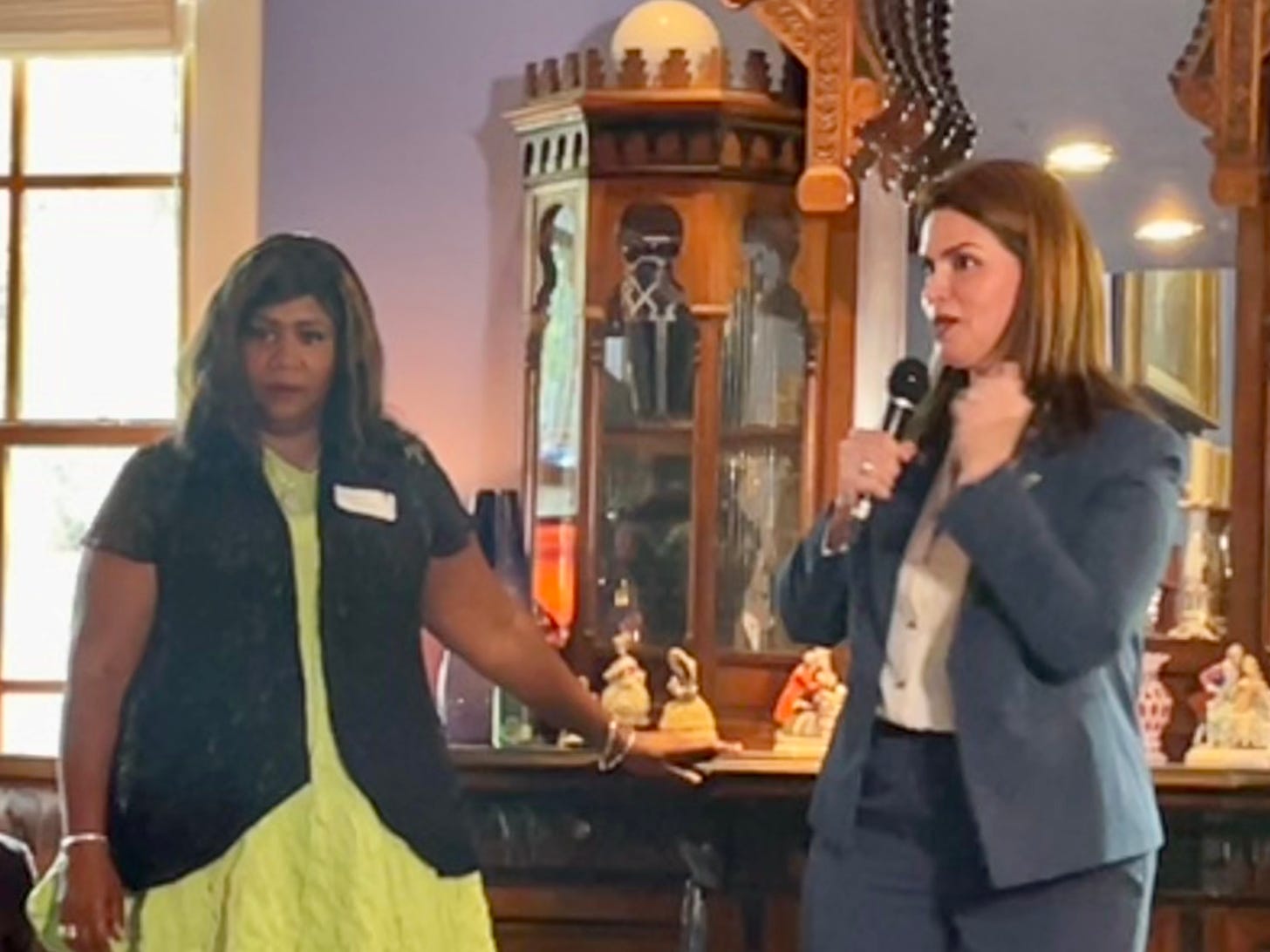
Romero, along with Tucson City Council members Lane Santa Cruz and Nikki Lee are all defending their seats against Republican challengers in November and several other Arizona municipalities are holding special elections for bonds, overrides, amendments and other initiatives.
Romero, who became Tucson’s first woman mayor in 2019 and is only the city’s second Mexican-American mayor since 1875, said the ability to find allies in local government is key, Romero said.
“We need each other throughout the state as a collective network of elected women who can easily understand … what happens in the board rooms when sometimes you’re just the only (woman) there,” she said. “Being able to help each other in this journey is important.”
Voter turnout is historically low during Tucson’s off-year elections, but we can’t help but wonder what would happen if people paid as much attention to local races as they do to the presidential election.
Issues that most heavily impact residents’ day-to-day lives, including health care, small business development, property rights, libraries, schools and government spending, are often decided by local leaders, not at the federal level.
These are the issues that can benefit the most from having broad representation in local government, according to Flagstaff’s Evans, who called local elections “our first line of defense.”
“We’re talking about being in spaces where women have not traditionally been,” Evans said. “When you talk about changing generational poverty, you have to change systems. And in order for us to change those systems, everybody needs to be at the table and have those discussions.”

That’s ambitious: Photographer Jonathan Keats set up a camera on Tumamoc Hill to take a single photo over the next 1,000 years, AZPM’s Hannah Cree reported. Light enters a pinhole and develops on a special pigment.
“What was there for longer, would be more bold, what was there for a shorter span would be more ghostly. What is changing constantly would be a sort of a blur,” [Keats] said.
We’d really like to see that photo when it’s ready. All we need are about 1 million paid subscribers to keep the Tucson Agenda going for the next 1,000 years. Upgrade today and help us get there!
Health info at risk: The company that Pima County contracted with to gather health information during the COVID-19 pandemic had a data breach that exposed the data of about 110,000 county residents, the Star’s Jamie Donnelly reported. Maximus Health Services, Inc. told county officials the data included health information, but not Social Security numbers. The county set up a website with more information about the breach.
Somebody’s on the hook: The Biden administration cancelled $72 million in loans taken out by students of Ashford University, which the University of Arizona bought in 2020. That’s good news for those students, who said Ashford misled them, but not so much for the UA. Federal officials want the UA to pay that $72 million, the Associated Press reported. UA officials told the Arizona Daily Star they had nothing to do with those loans, which were taken out before UA bought Ashford.

Gotta have a goal: The state water agency adopted a goal for the Douglas Active Management Area on July 28 that addressed the concerns of residents who were upset the agency’s proposed goal would be “attempting” to protect the aquifer, rather than actually protecting it. We wrote about the kerfuffle back in July, but we missed that the Arizona Department of Water Resources adopted the new goal. Luckily, fellow Substacker Beau Hodai at the Cochise Regional News was on top of it.

Just ask Why: The failure of a well in Why, a small town west of Tucson, tells us a lot about the long and expensive road water takes to get to the tap, as AZPM’s Zac Ziegler and Katya Mendoza report for the Tapped series about water.
Give a pup a hand: The Pima Animal Care Center is at critical capacity, the Tucson Sentinel’s Bianca Morales reports. PACC took in about 300 animals over the past three days. They need the public’s help to foster or adopt dogs immediately. If you’re interested, more information about fostering is here.
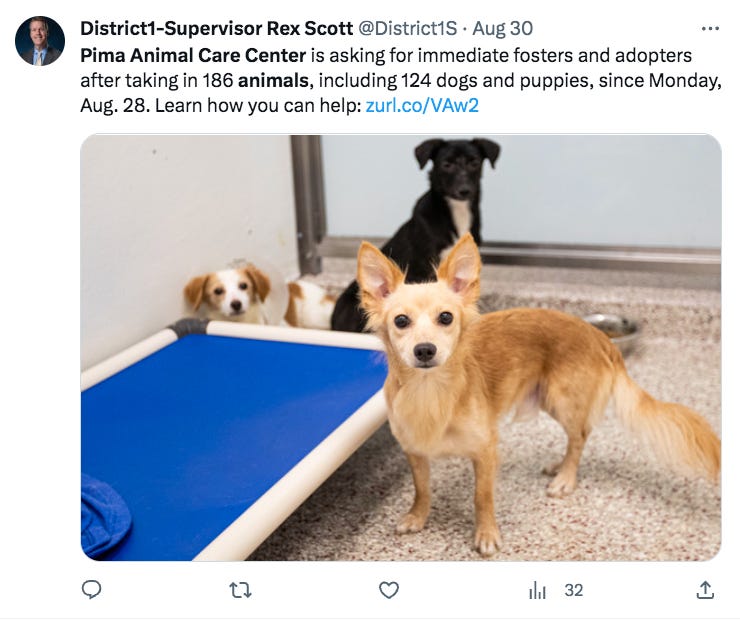

We’ll be speaking at Democrats of Greater Tucson on Monday, September 11, and we’d love to speak to your civic or political groups too!
Republicans, Libertarians, independents, even you No Labels Party people, reach out to invite us to your event. We’d love to meet your group and we’re informative without being boring!
To get in touch, email [email protected]
The closes we ever came to full woman domination in government was in 1998, when Jane Dee Hull was elected governor, Betsey Bayless won the Secretary Of State’s Office, Janet Napolitano became attorney general, Carol Springer was elected as state treasurer, and Lisa Graham-Keegan won elected Superintendent of Public Instruction’s Office. To this day, the “Fab Five” remain the greatest number of women to serve in a state’s highest elected offices at any given time, according to the Arizona Memory Project.
